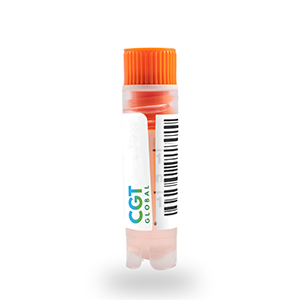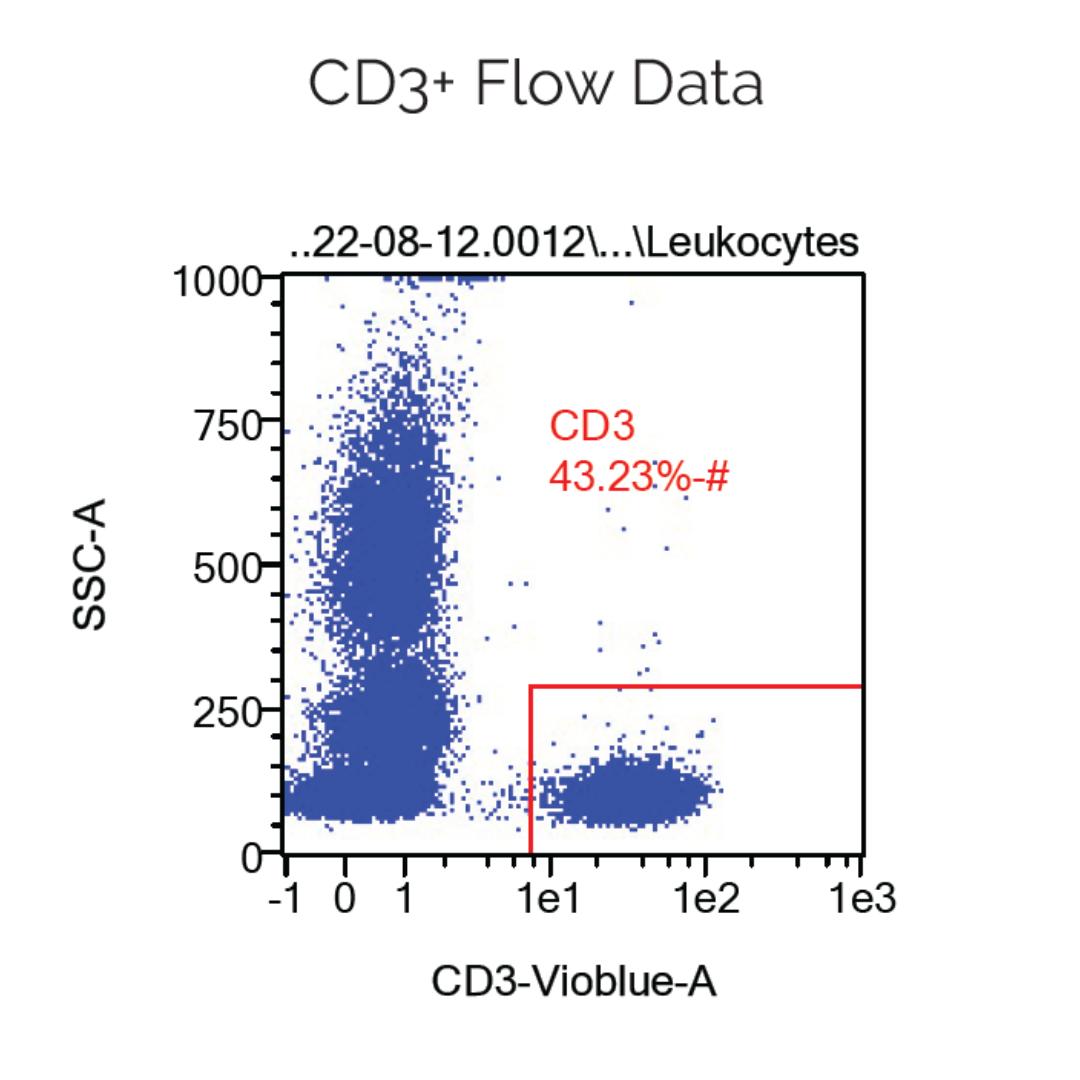Peripheral Blood CD3+ Pan T Cells, Frozen
Human peripheral blood CD3+ pan T cells are isolated by means of negative selection. Cells expressing CD14, CD15, CD16, CD19, CD36, CD56, CD123, and CD235a are depleted from the mononuclear cell population using immunomagnetic particles leaving purified, untouched CD3+ pan T cells. Isolated cells are characterized by flow cytometry prior to cryopreservation to ensure a highly pure and viable cell population.
*Our CD3+ Pan T Cells are isolated by means of negative selection. However, we do offer the isolation of CD3+ T cells by positive selection as a custom order. Please inquire to obtain pricing for the positive selection of CD3+ T cells.
Cells were obtained using Institutional Review Board (IRB) approved consent forms and protocols.
Since our founding in 2010, CGT Global has pursued our mission to transform healthcare as we accelerate cell and gene therapy research and clinical trials, streamline the commercialization of new treatments, and map the last mile to patient access to these life-changing remedies. By innovating each stage in the cycle; development, commercialization, and delivery, we reduce the overall cost of the care and multiply access points so that millions can receive cutting edge, life-saving gene and cell therapies.

Description
Human T cells are lymphocytes that are generally characterized by the expression of CD3 on the cell surface. These cells originate in the bone marrow, migrate to the thymus to undergo maturation, and are one of the key cell types involved in cell-mediated immunity. T cells destroy invading organisms and aid in the activation of B cells through the thymus-dependent response. There are several different subsets of T cells, including helper T cells (naïve and memory), cytotoxic T cells (naïve and memory), regulatory T cells, and natural killer T (NKT) cells.
Additional information
| Anticoagulant | |
|---|---|
| Format | |
| Grade | |
| Species | |
| Cell and Tissue Source | |
| Disease State | |
| Donor Attributes |
Product Information Sheet
Froning et al. (2020) Computational Stabilization of T Cell Receptors Allows Pairing with Antibodies to Form Bispecifics. Nat Commun 11, 2330.



